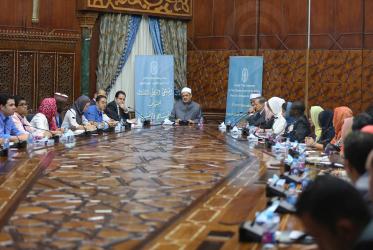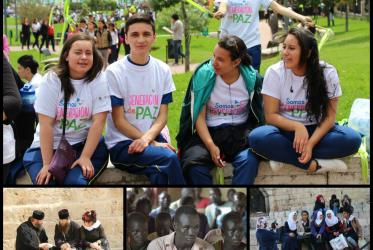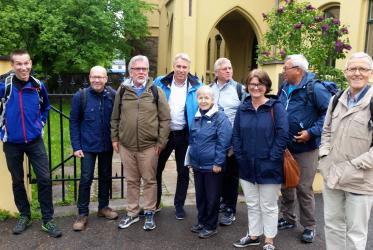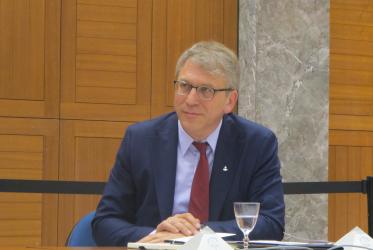Displaying 81 - 100 of 126
01 December 2016
What does ‘prudence’ mean for dialogue and peace-building?
16 November 2016
Religious leaders of many faiths talk peace in Assisi
21 September 2016
WCC general secretary reflects on peace in Palestine and Israel
20 September 2016
WCC Central Committee convenes in Trondheim, Norway
22 June 2016
Panel discussion fields ideas on European identity
26 April 2016
Catholic-WCC group pursues new mandate
13 April 2016
International affairs facilitator reflects on pilgrimage
31 March 2016
Religious leaders as agents of peace in the Americas
02 March 2016













